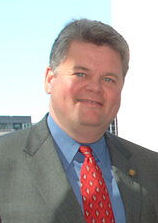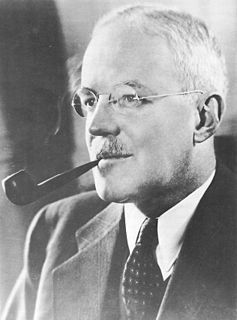A Quote by Ralph Waldo Emerson
Cities force growth and make men talkative and entertaining, but they make them artificial. What possesses interest for us is thenatural of each, his constitutional excellence. This is forever a surprise, engaging and lovely; we cannot be satiated with knowing it, and about it; and it is this which the conversation with Nature cherishes and guards.
Related Quotes
Modern man lives isolated in his artificial environment, not because the artificial is evil as such, but because of his lack of comprehension of the forces which make it work- of the principles which relate his gadgets to the forces of nature, to the universal order. It is not central heating which makes his existence 'unnatural,' but his refusal to take an interest in the principles behind it. By being entirely dependent on science, yet closing his mind to it, he leads the life of an urban barbarian.
Enclosed within his artificial creation, man finds that there is “no exit”; that he cannot pierce the shell of technology again to find the ancient milieu to which he was adapted for hundreds of thousands of years . In our cities there is no more day or night or heat or cold. But there is overpopulation, thralldom to press and television, total absence of purpose. All men are constrained by means external to them to ends equally external. The further the technical mechanism develops that allows us to escape natural necessity, the more we are subjected to artificial technical necessities.
The intelligent have a right over the ignorant, namely, the right of instructing them. The right punishment of one out of tune, isto make him play in tune; the fine which the good, refusing to govern, ought to pay, is, to be governed by a worse man; that his guards shall not handle gold and silver, but shall be instructed that there is gold and silver in their souls, which will make men willing to give them every thing which they need.
There are two men in each one of us: the scientist, he who starts with a clear field and desires to rise to the knowledge of Nature through observations, experimentation and reasoning, and the man of sentiment, the man of belief, the man who mourns his dead children, and who cannot, alas, prove that he will see them again, but who believes that he will, and lives in the hope – the man who will not die like a vibrio, but who feels that the force that is within him cannot die.
My interest as a writer is not in reflecting actual human speech, which, of course, does not occur in sentences and is totally undiagrammable. My interest is in trying to reflect the reality of experience - how we feel when we talk to each other, how we feel when we're engaging with questions that interest us.
The opportunities of the twenty-first century make those of us who care about cities feel like kids in a candy store: How will cities survive and lead the way in the transformation required to combat global warming? Resilient Cities gives us a road map for this epic journey upon which we are embarking.
The most delicate beauty in the mind of women is, and ever must be, an independence of artificial stimulants for content. It is not so with men. The links that bind men to capitals belong to the golden chain of civilization,--the chain which fastens all our destinies to the throne of Jove. And hence the larger proportion of men in whom genius is pre-eminent have preferred to live in cities, though some of them have bequeathed to us the loveliest pictures of the rural scenes in which they declined to dwell.
All who say the same things do not possess them in the same manner; and hence the incomparable author of the Art of Conversation pauses with so much care to make it understood that we must not judge of the capacity of a man by the excellence of a happy remark that we heard him make. Let us penetrate, says he, the mind from which it proceeds. It will oftenest be seen that he will be made to disavow it on the spot, and will be drawn very far from this better thought in which he does not believe, to plunge himself into another, quite base and ridiculous.
It would seem that it was not in the interest of 'someone' for us to make progress. It was in 'someone's' interest that we be always at war, that we tear each other to pieces. Yes, I'm inclined to absolve the Pakistanis. How should they have behaved? Someone encouraged them to attack us, someone gave them weapons to attack us. And they attacked us.
The definitions of humanism are many, but let us here take it to be the attitude of those men who think it an advantage to live in society, and, at that, in a complex and highly developed society, and who believe that man fulfills his nature and reaches his proper stature in this circumstance. The personal virtues which humanism cherishes are intelligence, amenity, and tolerance; the particular courage it asks for is that which is exercised in the support of these virtues. The qualities of intelligence which it chiefly prizes are modulation and flexibility.
Men should soon make up their minds to be forgotten, and look about them, or within them, for some higher motive in what they do than the approbation of men, which is fame, namely, their duty; that they should be constantly and quietly at work, each in his sphere, regardless of effects, and leaving their fame to take care of itself.







































